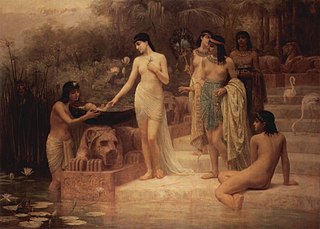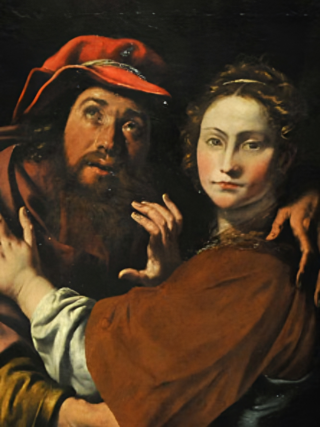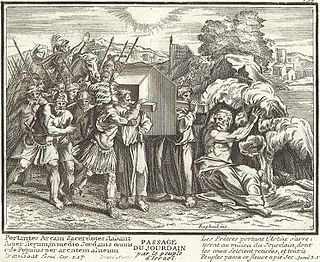
Mordecai Schreiber is an American Reform rabbi and an author of about 60 books. [1] [2]

Mordecai Schreiber is an American Reform rabbi and an author of about 60 books. [1] [2]
Schreiber was born in Haifa, Israel in 1939. He saw the State of Israel being born and told about it in his memoir Land of Dreams, as well as in his recent book Three Founders of Israel: Ben-Gurion, Begin and Stern. He recently completed a new book project on Moses and leadership with an Episcopal and a Muslim scholars.
He has served as a rabbi in the United States and Guatemala. He has assisted the US government as an expert during trials of several former Nazis who settled in the USA. [1] He is the founder of the Agnon School in Cleveland, Ohio, renamed the Mandel School.
He is married to Hanita Schreiber, former CEO of a United Health HMO in Washington, DC. His son Joel Schreiber is a financial planner in Montclair, NJ. His daughter Rachel Schreiber is the new executive dean of the Parsons School of Design in New York City. His younger daughter Marla Schulman is the president of Schreiber Translations in Rockville, MD, a major provider of technical translations to the U.S. Government which Schreiber founded in 1979.
Also: technical books for translators

In Judaism, the concept of the Jews as chosen people is the belief that the Jews as a people, via descent from the ancient Israelites, are a chosen people, i.e. selected to be in a covenant with God. Israelites being properly the chosen people of God is found directly in the Book of Deuteronomy 7:6 as the verb baḥar (בָּחַר), and is alluded to elsewhere in the Hebrew Bible using other terms such as "holy people" as goy or gentile, Book of Exodus 19:6. Much is written about these topics in rabbinic literature. The three largest Jewish denominations—Orthodox Judaism, Conservative Judaism and Reform Judaism—maintain the belief that the Jews have been chosen by God for a purpose. Sometimes this choice is seen by believers as charging the Jewish people with a specific mission—to be a light unto the nations, and to exemplify the covenant with God as described in the Torah. Isaiah and Jeremiah viewed God's loving choice of Israel as a means to teaching monotheism, combatting idolatry, curbing human arrogance, ending violence, lust, greed, extreme chauvinism and warfare, and ushering in a new society.
The Book of Exodus is the second book of the Bible. It is a narrative of the Exodus, the origin myth of the Israelites leaving slavery in Biblical Egypt through the strength of their deity named Yahweh, who according to the story chose them as his people. The Israelites then journey with the legendary prophet Moses to Mount Sinai, where Yahweh gives the Ten Commandments and they enter into a covenant with Yahweh, who promises to make them a "holy nation, and a kingdom of priests" on condition of their faithfulness. He gives them their laws and instructions to build the Tabernacle, the means by which he will come from heaven and dwell with them and lead them in a holy war to conquer Canaan, which has earlier, according to the myth of Genesis, been promised to the "seed" of Abraham, the legendary patriarch of the Israelites.

Joshua, also known as Yehoshua, Jehoshua, or Josue, functioned as Moses' assistant in the books of Exodus and Numbers, and later succeeded Moses as leader of the Israelite tribes in the Book of Joshua of the Hebrew Bible. His name was Hoshea the son of Nun, of the tribe of Ephraim, but Moses called him "Yehoshua", the name by which he is commonly known in English. According to the Bible, he was born in Egypt prior to the Exodus.

In Abrahamic religions, Moses was a prophet who led the Israelites out of slavery in the Exodus. He is considered the most important prophet in Judaism and Samaritanism, and one of the most important prophets in Christianity, Islam, the Baháʼí Faith, and other Abrahamic religions. According to both the Bible and the Quran, God dictated the Mosaic Law to Moses, which he wrote down in the five books of the Torah.

Mordecai Menahem Kaplan was an American Modern Orthodox rabbi, writer, Jewish educator, professor, theologian, philosopher, activist, and religious leader who founded the Reconstructionist movement of Judaism along with his son-in-law Ira Eisenstein. He has been described as a "towering figure" in the recent history of Judaism for his influential work in adapting it to modern society, contending that Judaism should be a unifying and creative force by stressing the cultural and historical character of the religion as well as theological doctrine.

The formulation of principles of faith that are universally recognized by all branches of Judaism remains undefined. There is no central authority in Judaism in existence today - although the Sanhedrin, the supreme Jewish religious court, would fulfill this role if it were re-established. Instead, Judaism's principles of faith remain debated by the rabbis based on their understanding of the sacred writings, laws, and traditions, which collectively shape its theological and ethical framework. The most accepted version in extent is the opinion of Maimonides.

Holocaust theology is a body of theological and philosophical debate concerning the role of God in the universe in light of the Holocaust of the late 1930s and early 1940s. Exploration of Holocaust theology is found primarily within Judaism. This focus reflects the cataclysmic devastation wreaked on the European Jewish population as the primary targets of the Holocaust.

Religious ties between Muslims and the Jewish people have existed since the founding of Islam in the Arabian Peninsula in the 7th century; Muhammad's views on Jews were shaped by his extensive contact with the Jewish tribes of Arabia during his lifetime. Islam shares similar values, guidelines, and principles with the Jewish religion, and also incorporates Jewish history as a part of its own. Muslims regard the Israelites, to whom Jews and Samaritans trace their ethnic ancestry, as an important religious concept; they are referenced around 43 times in the Quran, excluding individual prophets, and in many accounts of hadith. Similarly, Moses, the most important Jewish prophet, is also regarded by Muslims as an Islamic prophet and messenger ; his name is mentioned in the Quran 136 times—more than any other individual—and his life is narrated and recounted more than that of any other prophet. The Torah, which is the compilation of the first five books of the Hebrew Bible, is also held by Muslims as an Islamic holy book that was revealed by God through various Israelite prophets and messengers. Later rabbinic authorities and Jewish scholars, such as Maimonides, engaged in discussions concerning the relationship between Islam and Jewish religious law. Maimonides himself, it has been argued, was influenced by Islamic legal thought while living in the caliphates of his time.

Toledot, Toldot, Toldos, or Toldoth is the sixth weekly Torah portion in the annual Jewish cycle of Torah reading. The parashah tells of the conflict between Jacob and Esau, Isaac's passing off his wife Rebekah as his sister, and Isaac's blessing of his sons.

Vayigash or Vaigash is the eleventh weekly Torah portion in the annual Jewish cycle of Torah reading. It constitutes Genesis 44:18–47:27.

Shemot, Shemoth, or Shemos is the thirteenth weekly Torah portion in the annual Jewish cycle of Torah reading and the first in the Book of Exodus. It constitutes Exodus 1:1–6:1. The parashah tells of the Israelites' affliction in Egypt, the hiding and rescuing of the infant Moses, Moses in Midian, the calling of Moses by GOD, circumcision on the way, meeting the elders, and Moses before Pharaoh.

Devarim, Dvarim, or Debarim is the 44th weekly Torah portion in the annual Jewish cycle of Torah reading and the first in the Book of Deuteronomy. It comprises Deuteronomy 1:1–3:22. The parashah recounts how Moses appointed chiefs, the episode of the Twelve Spies, encounters with the Edomites and Ammonites, the conquest of Sihon and Og, and the assignment of land to the tribes of Reuben, Gad, and Manasseh.
The Gathering of Israel, or the Ingathering of the Jewish diaspora, is the biblical promise of Deuteronomy 30:1–5, made by Moses to the Israelites prior to their entry into the Land of Israel.

Jewish mythology is the body of myths associated with Judaism. Elements of Jewish mythology have had a profound influence on Christian mythology and on Islamic mythology, as well as on Abrahamic culture in general. Christian mythology directly inherited many of the narratives from the Jewish people, sharing in common the narratives from the Old Testament. Islamic mythology also shares many of the same stories; for instance, a creation-account spaced out over six periods, the legend of Abraham, the stories of Moses and the Israelites, and many more.

Vayoel Moshe is a Hebrew book written in 1961 by Rabbi Joel Teitelbaum, founder of the Satmar Hasidic movement. In it, Teitelbaum argues that Zionism is incompatible with Judaism.

Rachel was a Biblical figure, the favorite of Jacob's two wives, and the mother of Joseph and Benjamin, two of the twelve progenitors of the tribes of Israel. Rachel's father was Laban. Her older sister was Leah, Jacob's first wife. Her aunt Rebecca was Jacob's mother.
Normative Judaism's views on warfare are defined by restraint that is neither guided by avidness for belligerence nor is it categorically pacifist. Traditionally, self-defense has been the underpinning principle for the sanctioned use of violence, with the maintenance of peace taking precedence over waging war. While the biblical narrative about the conquest of Canaan and the commands related to it have had a deep influence on Western culture, mainstream Jewish traditions throughout history have treated these texts as purely historical or highly conditioned, and in either case not relevant to contemporary life. However, some minor strains of radical Zionism promote aggressive war and justify them with biblical texts.
Judaism's doctrines and texts have sometimes been associated with violence or anti-violence. Laws requiring the eradication of evil, sometimes using violent means, exist in the Jewish tradition. However, Judaism also contains peaceful texts and doctrines. There is often a juxtaposition of Judaic law and theology to violence and nonviolence by groups and individuals. Attitudes and laws towards both peace and violence exist within the Jewish tradition. Throughout history, Judaism's religious texts or precepts have been used to promote as well as oppose violence.

Yom HaAliyah, or Aliyah Day, is an Israeli national holiday celebrated annually according to the Jewish calendar on the tenth of the Hebrew month of Nisan to commemorate the Jewish people entering the Land of Israel as written in the Hebrew Bible, which happened on the tenth of the Hebrew month of Nisan. The holiday was also established to acknowledge Aliyah, immigration of Jews to the Jewish state, as a core value of the State of Israel, and honor the ongoing contributions of Olim, Jewish immigrants, to Israeli society. Yom HaAliyah is also observed in Israeli schools on the seventh of the Hebrew month of Cheshvan.